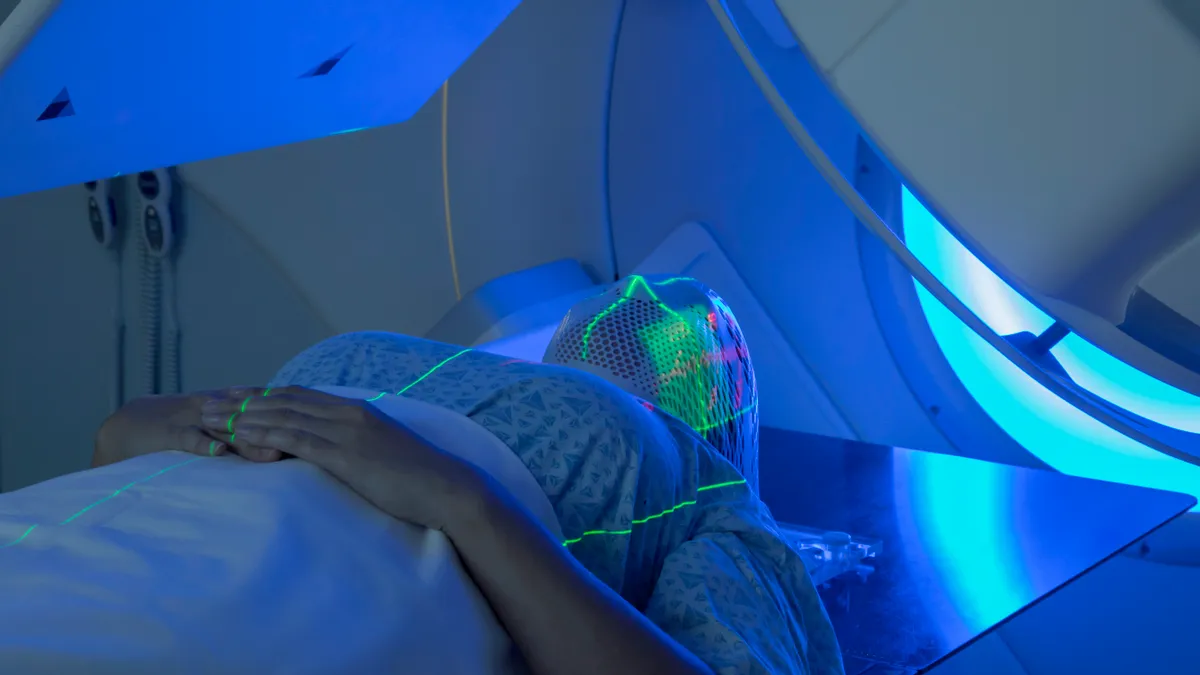Dive Brief:
-
One-third of physicians expect the mandatory radiation oncology bundled payment model to negatively affect purchasing, according to results from a UBS survey of 121 released this week.
-
The finding indicates the payment model could create a headwind for companies in the sector. However, responses to other survey questions suggest physicians will continue to buy new radiation oncology systems at a similar rate as in the past.
-
UBS analysts reacted to the contradiction and resulting uncertainty by slightly lowering its revenue and earnings forecasts for Varian and Elekta, but remain bullish on the sector thanks to ex-U.S. tailwinds such as anticipated acceleration of orders from China and new tech rollouts.
Dive Insight:
CMS unveiled the proposed bundled payment in July, which entails tying payments to "measures of quality and patient experience." The agency said the payment model can save Medicare $260 million over a five-year period.
The plan received a frosty reception from the industry, with trade group AdvaMed arguing it "will put practices and hospitals at financial risk for delivering clinically appropriate care to their patients." AdvaMed and other groups want CMS to delay implementation beyond an April 1 start date laid out in the proposed rule.
UBS polled 121 physicians involved in radiation oncology to gather their views on the situation. Asked directly about the CMS bundle, one-third of physicians said it would negatively affect purchasing. Just 7% expect the bundle to positively affect purchasing. Most of the other physicians surveyed see no impact.
While that finding is clearly negative for manufacturers of radiation oncology equipment, the rest of the responses provide reasons for optimism. The survey found 55% of physicians expect to buy a new system within the next 12 months. That result is in line with what UBS found when it asked the same question in 2018, before the bundle was proposed, resulting in a mixed picture for the industry.
"We see risk of softer U.S. order growth this quarter given bundle uncertainty," analysts at UBS wrote. "Counterbalancing this, we continue to see evidence that hospitals want to invest in the space, with demand for new equipment and other catalysts helping to drive growth and profitability."
The analysts said the extent of pushback against the bundle could cause CMS to change some of the proposal's elements, such as scaling back the scope of the model, as Varian has requested.










